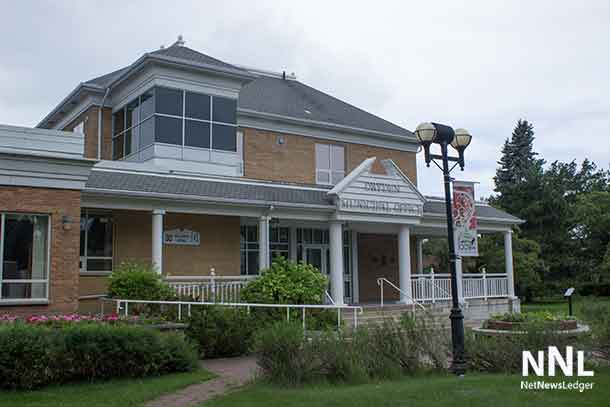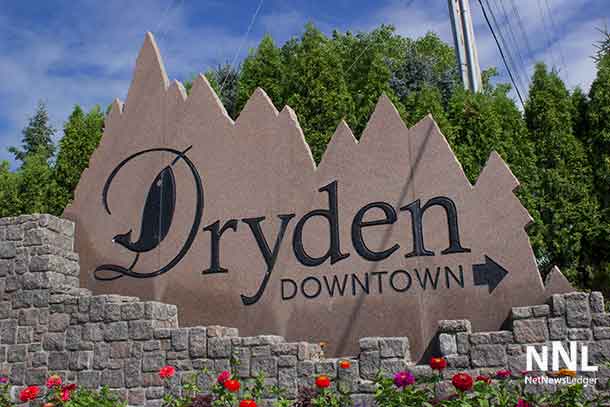
DRYDEN – Dryden Mayor Wilson spoke out during the recent Dryden City Council Meeting regarding comments made by Councillor Nick Beyak. Here is the text of the Mayor’s address.
As a practice I am not in the habit of speaking from the Mayor’s chair on comments made by Councillors about non- City agenda related matters outside of this Chamber. However, the decision by some on Council last week to draw attention to ourselves (two directly and one indirectly) compels me to share my own thoughts with Council, the citizens of Dryden and the public at large. I don’t necessarily agree with all they had to say but I respect their right to speak as long as they do so in a nondiscriminatory manner.
Let me start by saying that Councilor Beyak’s statements to CBC last week do not represent those of Council and were never meant to. They are his, and his alone.
I believe that it is very important for First Nations residential school survivors to hear that Dryden acknowledges their tragic experience and grieves with them at the many shattered lives resulting from the federal government’s failed policies of the 19th and 20th century, up to and including today.
I am not saying this as a platitude or “motherhood” statement. I grew up in a school system where the government had switched from a policy of indigenous segregation to one of assimilation, not understanding why a grade 8 classmate of mine who was placed in foster care to attend school would want to take his own life that winter. It is only decades later that I started to get a faint understanding of the forces behind such tragic events.
This kind of result is what happens when people in power try to dictate the lives of others from a distance without understanding or respecting the culture, leadership, economic and social fabric of local communities. Unfortunately, that legacy persists to this day.
If Senator Beyak’s remarks were intended to diminish the impact of residential schools on our indigenous population, then I would not support those comments.
If her comments were also directed at diminishing indigenous rights or their place in Canada as Canadians with the suggestion that trading in status cards for Canadian citizenship would advance their status in this country I would also not support such views.
It doesn’t matter how well-intentioned a person or government is if they are heading in the wrong direction. No good will come of it. It’s my own personal opinion but I believe the reason the Missing and Murdered Indigenous Women Commission is struggling is, again, because far away distant governments do poorly when it comes to engaging with local people in meaningful ways.
The result of fractured engagement and involvement in the decision-making process leads to frustration, disengagement, and cynicism with those involved. We can and should do better. I would love to see the Commission take the time to make a stop (and more than one stop) here in Northwestern Ontario.
As hard as this country tries, and as good as we might think we are compared to our southern neighbour, no town or city in Canada can claim to be free from the very discrimination and racism we criticize others for. We live in a glass house. I stand by my 2014 statement at the municipal elections debate that racism does exist in our own hometown and we must do everything in our power to wipe it out.
For my part, I will be renewing my efforts to get to know my neighbours from Wabigoon Lake Ojibway Nation and Eagle Lake First Nation, Treaty 3 and 9 and the Metis Nation of Ontario (to name a few). The contacts we have made to date have been good but I’d like to see communication and dialogue improve to the point that we can put together a document based on respect and areas of mutual interest that well describes our relationship. Working together we can make such a positive difference for our communities in so many ways.
In municipal politics, as in other political and social arenas, there is a trend away from true dialogue with our neighbours. We practice the art of talking to each other instead of talking with each other. This creates barriers not bridges, especially where powerful words are used without thought given to their definition. As the saying goes, communication breaks down when the same words are used, if they don’t come from the same dictionary.
If we don’t take the time in our busy day to stop and think; stop and listen and engage with others with both our heads and our hearts (whether we agree with those across from us or not) we will condemn ourselves to repeating past horrors of history. Again, we need look no further than the Residential School tragedy in our own backyard.
I was born 13 years after the end of the Second World War. One day when I was about 12 or 13 I remember reading about the 20 million people Stalin killed in his reign of terror on his own country, this number apart from the other 20 million who died defending Russia from fascist Germany. So I asked my dad why we allowed the Communist Party of Canada to exist when those Marxist ideas caused so much suffering. His response surprised me. He said, “It’s because we’re different from the Communist countries. There, if you disagree with those who wield power you will be silenced. We’re a democratic country in Canada where we allow everyone to have a voice whether we agree with them or not.”
That was my first and most powerful introduction to the word “democracy”. Since that time we have enacted hate speech and other laws that attempt to curb racism while balancing the right to free speech. This is always a difficult task for society.
A true democracy fosters a spirit of true communication, (real dialogue) when we support, challenge or condemn ideas, not people.
I ask Council and the citizens of Dryden listening tonight, what your definition of tolerance is? Is a tolerant mind, a tolerant society, one where everyone agrees with each other? That is not the definition. It is in fact quite the opposite. Tolerance is the ability to respect others you do not agree with. This takes both time and effort and a skill called listening which then becomes the touchstone for growth, understanding and appreciation for others who’s views and backgrounds may not be the same as our own. In Dryden, ….Canada, this is an area we can work to improve.

